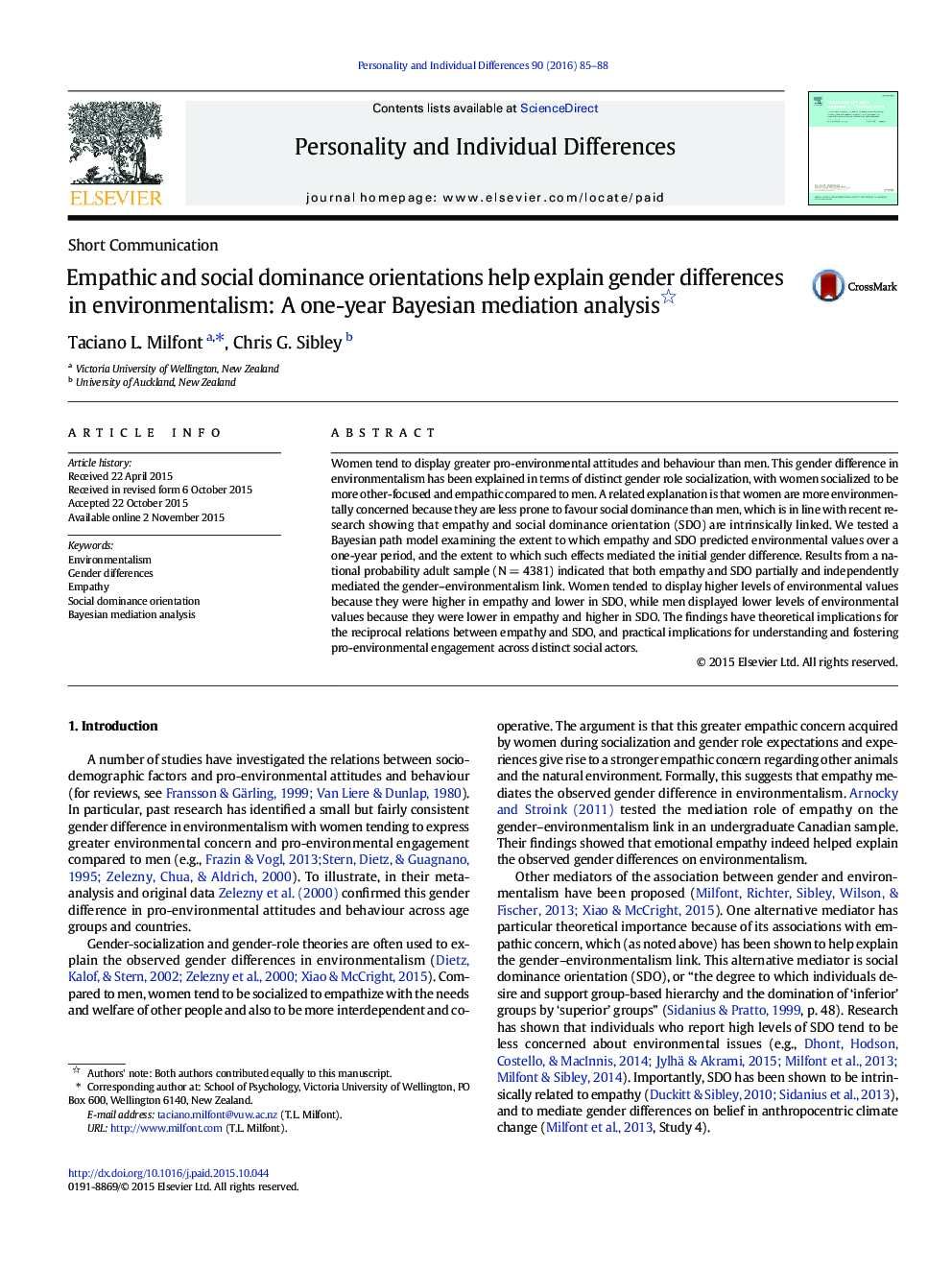| کد مقاله | کد نشریه | سال انتشار | مقاله انگلیسی | نسخه تمام متن |
|---|---|---|---|---|
| 889877 | 1472028 | 2016 | 4 صفحه PDF | دانلود رایگان |
• Women report stronger environmental attitudes and behaviours than men.
• We examine mechanisms underlying these gender differences in environmentalism.
• We analyse a one-year national panel data of New Zealanders (N = 4421).
• Empathy and social dominance orientation help explain gender differences.
• Women score higher in empathy and lower in social dominance orientation.
Women tend to display greater pro-environmental attitudes and behaviour than men. This gender difference in environmentalism has been explained in terms of distinct gender role socialization, with women socialized to be more other-focused and empathic compared to men. A related explanation is that women are more environmentally concerned because they are less prone to favour social dominance than men, which is in line with recent research showing that empathy and social dominance orientation (SDO) are intrinsically linked. We tested a Bayesian path model examining the extent to which empathy and SDO predicted environmental values over a one-year period, and the extent to which such effects mediated the initial gender difference. Results from a national probability adult sample (N = 4381) indicated that both empathy and SDO partially and independently mediated the gender–environmentalism link. Women tended to display higher levels of environmental values because they were higher in empathy and lower in SDO, while men displayed lower levels of environmental values because they were lower in empathy and higher in SDO. The findings have theoretical implications for the reciprocal relations between empathy and SDO, and practical implications for understanding and fostering pro-environmental engagement across distinct social actors.
Journal: Personality and Individual Differences - Volume 90, February 2016, Pages 85–88
